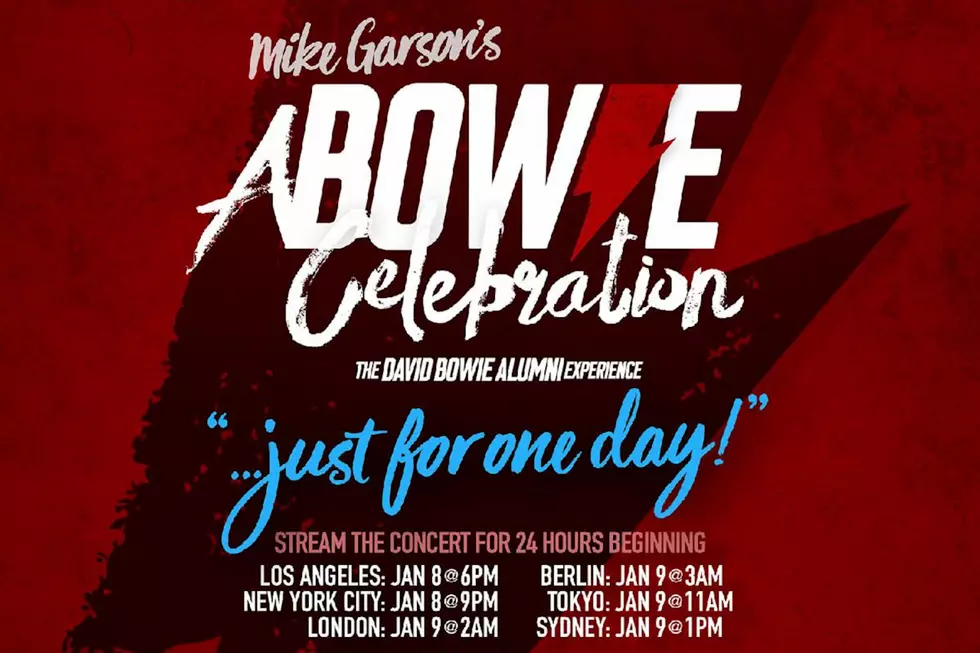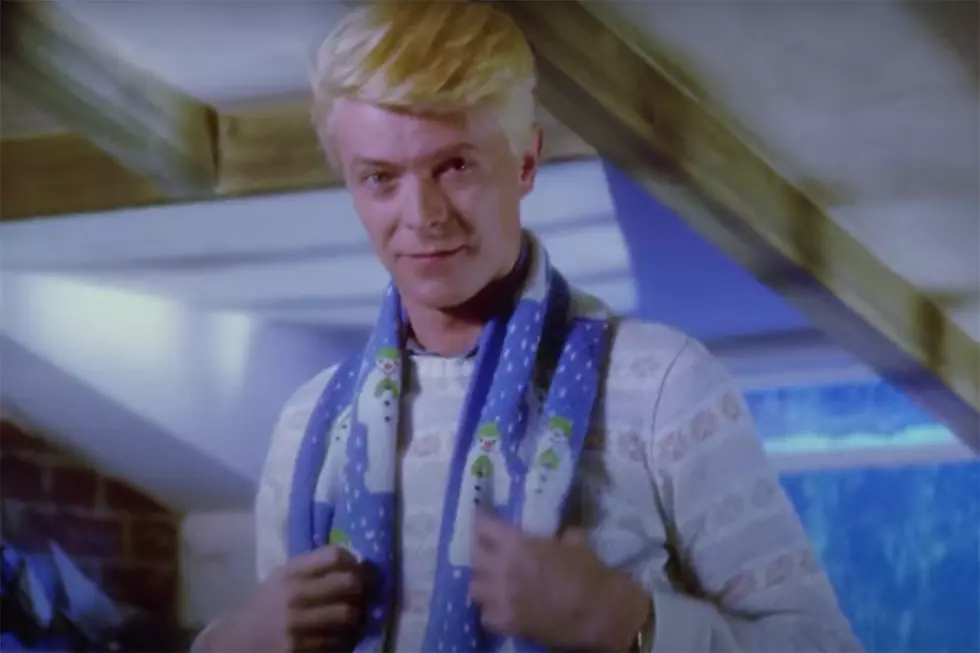30 Years Ago: David Bowie Gets Lost in the Sound on ‘Never Let Me Down’
A decade after David Bowie had used Iggy Pop as a “guinea pig” at the beginning of his Berlin Trilogy, the Thin White Duke again found himself following in the footsteps of the former Stooge. After writing and working with Pop in Switzerland on Iggy’s slick 1986 LP Blah Blah Blah, Bowie decided to stay in Montreux (he owned a nearby chalet) and record his next album there.
After a pair of albums designed to succeed in the mainstream pop market (1983’s Let’s Dance and ’84’s Tonight), the new record was supposed to be Bowie’s return to rock. He wanted to put the focus on guitar, get back to working with a small band. He’d eventually get there – with Tin Machine, which was to come next – but not on Never Let Me Down, which would mix personal, nostalgic and political songs with a bright, big ’80s production. In making his 17th solo disc, he found himself heavily influenced by all different eras of pop music and his favorite musicians.
“Yeah, it started off as an unconscious thing,” Bowie told Music and Sound Output in 1987. “On some songs, it’s more obvious than the others, but if just felt right. I’m at an age where it’s important for me to know who my influences were all through what I’ve been doing. It’s a nod of my head and a tip of my hat.”
He admitted to channeling some legendary singers, using their vocal styles as characters on different tracks. The stars ranged from Prince and Smokey Robinson to Neil Young on “Time Will Crawl” and John Lennon on the title cut. In interview, he called the latter one of his most personal songs, it having been written about his friend and long-running assistant Coco Schwab. He suggested it was a platonic love song.
“But there is a romance in it, I guess, inasmuch as it’s hard for two people to feel totally at ease in each other’s company for that period of time and not expect too much from each other,” Bowie said to Rolling Stone. “Always being prepared to be there if the other one needs someone, you know? There’s not many people you find in life that you can do that with, or feel that way with.”
Meanwhile, other songs were inspired by world events, from his views on Margaret Thatcher (“’86 and Cry”) to the Chernobyl disaster (“Time Will Crawl”). Bowie was in Switzerland when he heard the news about the nuclear meltdown in Russia. He was so shaken by the accident, he felt moved to write.
“There is a rudeness about it musically,” Bowie told Words & Music in 1988. “I think it’s the closest thing I’ve written to a protest song. That seems to be something I only recently discovered in myself. I don’t think I’ve done it very well, because I’ve never done it before. … A lot of the stuff on this album is much more direct.”
Throughout the rest of his career, Bowie would claim “Time Will Crawl” as one of his favorite songs, even hand-selecting it for a compilation of his career’s work. But the whole of Never Let Me Down wouldn’t fare as well with Bowie, or the music press. Although the album performed well commercially when it was released on April 20, 1987 (it went gold in the U.K. and U.S.), Never Let Me Down was largely lambasted in reviews, many of which focused on the overblown production and a lack of cohesion among the songs. Opinions seem only to have soured in the intervening years.
Initially, Bowie would defend the music as being created specifically for his extravagant, theatrical Glass Spider tour – which was incredibly popular and respected for its elaborate sets and choreography. He hired old pal Peter Frampton to play on tour (he’d contributed a bit to the LP, too), a move for which Frampton remained grateful, as it boosted his flagging career. But, after he formed the hard-rocking Tin Machine and made a couple more albums in the ’90s, Bowie’s opinion of Never Let Me Down became more negative.
“My nadir was Never Let Me Down. It was such an awful album,” he told Interview in 1995. “I’ve gotten to a place now where I’m not very judgmental about myself. I put out what I do, whether it’s in visual arts or in music, because I know that everything I do is really heartfelt. Even if it’s a failure artistically, it doesn’t bother me in the same way that Never Let Me Down bothers me. I really shouldn’t have even bothered going into the studio to record it. [Laughs] In fact, when I play it, I wonder if I did sometimes.”
David Bowie Albums Ranked Worst to Best
More From KLTD-FM










